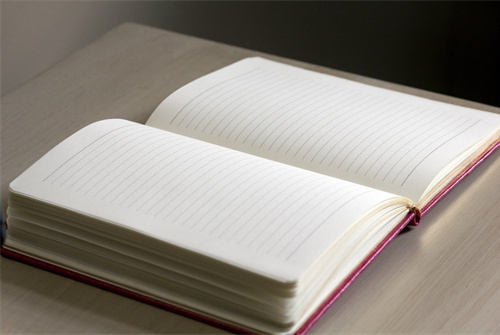自我介紹是向別人展示你自我介紹好不好,甚至直接關(guān)系到你給別人的第一印象的好壞及以后交往的順利與否 下面是小編為大家整理的小學(xué)生英語自我介紹錦集四篇,歡迎大家借鑒與參考,希望對大家有所幫助。
【篇一】小學(xué)生英語自我介紹
Smart Robot
Look, this robot carries boxes to build blocks! The new smart robot, Sorry, is 60 centimeters high。 It weighs 7。5 kilogram。 It has a camera “eye” on its head。 It can recognize colors and human faces。
聰明的機(jī)器人
瞧!這個(gè)機(jī)器人在搬盒子搭積木呢?索尼公司新設(shè)計(jì)的這個(gè)聰明的機(jī)器人有60里面7。5千克重。它額頭上有一只相機(jī)“眼睛”,能夠辨認(rèn)顏色和人臉。
【篇二】小學(xué)生英語自我介紹
一、全面復(fù)習(xí)抓基礎(chǔ),幫助學(xué)生全面地系統(tǒng)地復(fù)習(xí)所學(xué)過的知識
(一)過好單詞關(guān)。單詞是學(xué)習(xí)英語的基礎(chǔ),針對目前學(xué)生中存在的基礎(chǔ)差,習(xí)慣差的現(xiàn)狀,學(xué)生在反復(fù)記憶相同的內(nèi)容能使這些內(nèi)容長期儲存在記憶里,不易遺忘。因此我準(zhǔn)備從不同角度,用不同方法幫助學(xué)生復(fù)習(xí)單詞。
1按詞匯表復(fù)習(xí)單詞。
2按課本內(nèi)容來復(fù)習(xí)單詞,
3按字母組合來復(fù)習(xí)
4把單詞歸類記憶
加強(qiáng)單詞的朗讀與默寫,給學(xué)生明確的任務(wù),當(dāng)然對于極個(gè)別學(xué)困生來說,還要區(qū)別對待,給他們適當(dāng)降低難度和要求,使他們也能盡最大努力過好單詞關(guān)。
(二)過好詞組關(guān)。
將詞組復(fù)習(xí)與單詞分類復(fù)習(xí)相聯(lián)系,在復(fù)習(xí)的同時(shí)一起復(fù)習(xí)詞組讓學(xué)生在復(fù)習(xí)的同時(shí)掌握詞組構(gòu)成的規(guī)律。
(三)、過好句子關(guān)。
句子是學(xué)習(xí)英語的重點(diǎn)。
1、指導(dǎo)學(xué)生在語境中復(fù)習(xí)句子,讓學(xué)生分清日常交際用語的運(yùn)用場合。
2、根據(jù)句子類型指導(dǎo)學(xué)生在比較中復(fù)習(xí)句子,教給學(xué)生適當(dāng)?shù)恼Z法知識。
3、指導(dǎo)學(xué)生在表演中運(yùn)用句子,使復(fù)習(xí)課同樣生動(dòng)有趣。
【篇三】小學(xué)生英語自我介紹
Istiny,momtoldmethestoryofChristmas,mymothersaidthatChristmasday,aslongashangChristmasstockingsondoor,therewillbeaChristmasgrandpasendgiftstothesocks,thenIknowsendgiftChristmasgrandpaismyfather.
Kindergarten,onChristmasdaytheteacheraskedthechildrenallwearChristmashat,thechildrentakeaniceChristmashatdomorningexercise!Thentheteacherwillgiveussomecandy.
LookingforwardtoChristmaseveryyear,Igoliuxue86.comtothestreetscanfeeltheChristmasfestiveatmosphere.HearniceChristmassongs,seebeautifulChristmastreesandChristmasgrandpa,canalsoreceivegifts.
ThisChristmasIhaveanidea,IwanttolearntosingtheChristmassongs,andsingitasagifttomyteacher,classmates,andsurroundedbyallthepeoplewhocareaboutme.Iwanttosaytoyou:"myfriends,merryChristmas!"
【篇四】小學(xué)生英語自我介紹
Who Pours Ink on My Chair?
Donny is a seven year old boy。 He goes to school every day。 The school is near his home。 So he goes there on foot and es back home on time。 But today, he is late。 His mother asks him, “Why do you go to the headmaster’s office?”
“Because the teacher asks us a question in class and nobody can answer it, but I can。” “It’s good to answer the teacher’s question。” “But the question is ‘Who pours ink on my chair?’”
誰把墨水倒在我椅子了?
唐尼是個(gè)7歲孩子,每一天他都上學(xué)。學(xué)校在他的家附近。
因?yàn)椋恍腥ド蠈W(xué)并按時(shí)回家。可是今日他回來遲了。
他的母親問他:“你為什么去校長的辦公室?”
“因?yàn)榻處熢谏险n時(shí)教師問我們一個(gè)問題,沒有人能回答他,而我能。”
“回答教師的問題是好事。”
“但那個(gè)問題 ‘誰把墨水倒在我的椅子上了?’”
上一篇:黨員自我剖析材料【匯編六篇】






